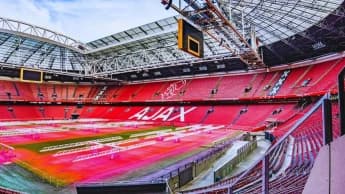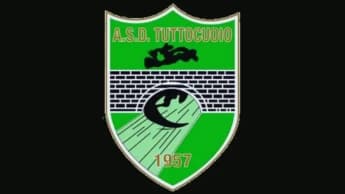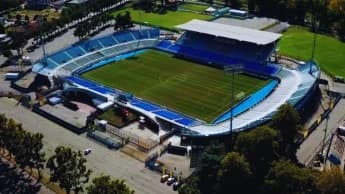
Bilbao Football Club, though short-lived from 1900 to 1903, played a vital role in shaping the football culture in Bilbao, influencing the future success of Athletic Club.
Bilbao Football Club was a short-lived yet historically important football team located in Bilbao, Spain, active from 1900 to 1903. The club was established by a group of wealthy locals and British expatriates, merging Bilbao’s upper-class culture with the athletic enthusiasm of British football. Even though its existence was brief, Bilbao FC was instrumental in nurturing the city’s football culture and setting the stage for the region’s future leadership in the sport.
The club was founded by a group of football enthusiasts under the leadership of Carlos Castellanos, who is frequently recognized for introducing the sport to the Iberian Peninsula. With an adventurous spirit, Bilbao FC emerged as one of the first organized football teams in Spain, competing against other nascent clubs. Their endeavors laid the groundwork for the future achievements of Athletic Club.
Bilbao FC is celebrated for being more than just a football club; it represented Bilbao’s global ties and forward-thinking attitude during the late 19th and early 20th centuries. The establishment of the club marked an important milestone in the larger narrative of football's arrival in Spain, highlighting the sport's ability to bridge cultural divides and unify communities.
Achievements of the Team
Although it had a short existence, Bilbao FC made notable achievements that secured its place in the annals of Spanish football history. In 1902, the club joined forces with Athletic Club to create Club Vizcaya, which triumphed in the first-ever Copa de la Coronación. This tournament, often seen as the forerunner to the Copa del Rey, marked a significant moment in the history of football in Spain.
Winning the 1902 Copa de la Coronación marked a pivotal achievement for Bilbao FC, highlighting their competitive drive and their ability to work alongside rivals for enhanced success. This victory illustrated the club’s talent for competing against some of the best teams of the time, including Barcelona, which they overcame in the final match.
In addition to their victories, the significant contribution of Bilbao FC was in making football popular and establishing it as an institution in Bilbao. The club laid the foundation for the footballing culture in the region, helping pave the way for the future rise of Athletic Club as a dominant force.
Even though Bilbao FC was integrated into Athletic Club in 1903, its legacy endures through the ongoing success of football in Bilbao. The influence of the club is acknowledged as a foundational element for Athletic Club, which subsequently rose to prominence in Spanish football during its formative years.
Advantages & Disadvantages
A key strength of Bilbao FC was its innovative spirit and forward-thinking vision. Established by prominent figures such as Carlos Castellanos, the club introduced a systematic and organized approach to football in Bilbao, establishing benchmarks for other future teams. Their capacity to work in partnership with Athletic Club showcased their flexibility and teamwork, which were crucial elements for their achievements.
The club gained significant advantages from its ties to British football traditions. With British expatriates playing a pivotal role in their growth, Bilbao FC embraced a disciplined approach to playing and introduced innovative tactics into the Spanish football scene. These factors provided them with a competitive advantage over other emerging clubs in the area.
Nevertheless, the club's primary shortcoming was its limited resources and impermanent nature. During an era when football was still evolving in Spain, Bilbao FC faced challenges in creating a sustainable framework. Their dependence on outside elements, like British workers and aristocratic governance, left them susceptible to fluctuations in both local and international conditions.
A significant challenge they faced was their difficulty in preserving a unique identity, as they were ultimately merged into Athletic Club. Although this union resulted in greater successes for football in Bilbao, it signified the conclusion of Bilbao FC’s independent legacy, constraining its potential to thrive as a separate entity.
Tactics & Playing Style
The tactical strategy of Bilbao FC was heavily influenced by British football, emphasizing discipline, teamwork, and a systematic style of play. The team prioritized precise passing and well-structured formations, reflecting the footballing customs that British expatriates introduced in Bilbao.
The team’s choice of white shirts and shorts represented their straightforward and systematic playing style. They frequently employed positional play, ensuring a solid defensive structure while taking advantage of counterattacks. This strategy allowed them to effectively compete with more established teams.
A defining feature of Bilbao FC’s approach was its flexibility. The team's capability to blend Spanish players with British influences resulted in a mixed style that connected local and international football cultures. This adaptability played a crucial role in their achievements during the Copa de la Coronación.
Nevertheless, the team's tactical complexity was constrained by its brief lifespan. Although they implemented progressive methods for that era, their playing style did not achieve the refinement and development characteristic of more enduring clubs. Nonetheless, the tactics employed by Bilbao FC served as a foundation for the strategies that Athletic Club would adopt in subsequent years.
Memorable Matches
The involvement of Bilbao FC in the 1902 Copa de la Coronación represents their most significant contribution to the history of football. During this pivotal tournament, they collaborated with Athletic Club to create Club Vizcaya and triumphed over FC Barcelona with a score of 2–1 in the final match to secure the championship. This triumph marked a crucial turning point for football in Bilbao, highlighting the region's capabilities on a national level.
A crucial part of the club’s history involved its initial games against British teams and crews from English ships. These matches, held at the Hippodrome of Lamiako, brought competitive football to Bilbao, drawing local fans and establishing a supporter base that would later rally behind Athletic Club.
The early 1890s matches against Club Atleta played a crucial role in shaping the landscape of football in Bilbao. These encounters represented the inception of organized football in the city, paving the way for the sport's subsequent development. The lively rivalry between these two teams fostered a lasting football culture that continues to thrive today.
Moreover, Bilbao FC played a pivotal role in the establishment of Real Sporting Club in 1898, further enhancing their legacy. By aiding in the creation of additional football organizations, Bilbao FC widened their impact beyond their individual games, influencing the overall football scene in Spain.
Looking Ahead
Although Bilbao FC is no longer an independent organization, its legacy endures through Athletic Club and the football culture of Bilbao. The club's groundbreaking initiatives established a solid foundation for the region's supremacy in Spanish football, with Athletic Club perpetuating the recognition of Bilbao FC’s impact.
Athletic Club's commitment to a policy of selecting homegrown players reflects the principles that were instituted during the era of Bilbao FC. By emphasizing the development of local talent, the essence of Bilbao FC continues to thrive, even in the current landscape of football.
The future of Bilbao FC’s legacy lies in the ongoing acknowledgment of their historical importance. By safeguarding and sharing their story, football historians and enthusiasts can ensure that the contributions of Bilbao FC continue to be an essential part of Spanish football history.
Even though the club itself may not exist anymore, its legacy continues to inspire fresh generations of players and supporters in Bilbao. The persistent enthusiasm for football within the city serves as a living homage to the groundbreaking endeavors of Bilbao FC and its founders.





